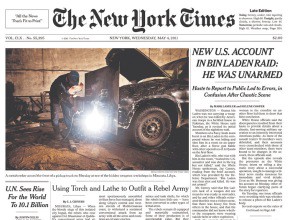You Could Have It So Much Better With Silvio Berlusconi
“Italian premier Silvio Berlusconi showed that standing trial for sex offences with a teenage prostitute had not affected his bawdy sense of humour, by telling a political rally of 1,000 women: ‘What a disaster that I’m not with you.’”
Do You Guys Even Know What Kind of Collar Your Shirt Has?
If you can believe it, there are different kinds of collars on shirts that men may wear to work and play. And some of them are better for you, and for situations, than others! Do you want to talk about this with me?
The Straight-Point Collar
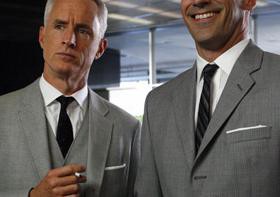
Oh you are quite possibly wearing this. You could ideally be wearing a nice collar stay, slipped inside the collar, should your shirt have little tiny stay pockets on the inside.
The Spread Collar
Oh, hooray, a name that sounds like what it means. A spread collar has points that aren’t so near! Here is a rather judgmental and detailed take on how far your collar spread should be. It should interact with the lines of your face! Thin men can wear a spread collar, not a long droopy one. Lots of websites are obsessed with this! Me, less so. Make yourself happy.
You can go too far with a spread collar. As certain mayors have.

That is a lot of spread.
At a certain point, by the way, the medium spread collar is almost indistinguishable from a straight point collar.
And also, yeah: this is probably something a man should think about for eight minutes in his life: what collar shape suits me? Then, you know, do whatever you want. (Just don’t wear a button-down collar with a nice suit.)
The Button-Down Collar
Right. Asked and answered. A BUTTON-DOWN COLLAR, IT HAS BUTTONS!
The Varsity Collar
The what now?
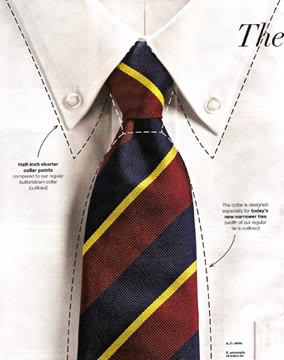
So the “varsity collar” is a kind of spread collar where its little wings point a bit out from the middle. (See the curve on the inside of the collar?) This might be great for somebody but I can’t imagine.
Here’s an interesting note, from two years ago, about the picture above — about Land’s End rolling out a “shorter collar shape of the first Original Oxford,” so as to accomodate today’s skinnier ties. This makes sense! And this illustration is a fairly decent guide to collar-tie interactions. You would not want to wear a big pointy foofy collar out to your shoulders with some skinny tie.
Tab Collar

Eek, it has a small tab, that goes underneath your tie, above the button! It freaks me out! I have never!
Club Collar

The club collar is rrroundsies! I’m scared to wear these. But there is a time and a place. For instance.
Banker’s Collar
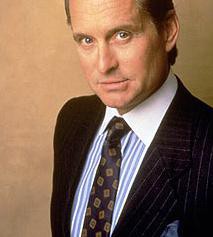
This is no longer actually a collar, in most cases. They used to be detachable, the white colors on a non-white shirt! Now we say “banker’s collar” to refer to a white color on a colored shirt. These are fun to wear with irony downtown, or so I hear.
Collar shapes aren’t just for dress shirts. This is a spread collar on a polo!

Are your polo shirt collars long and droopy, accentuating your long and droopy face?
There, I gave you something to worry about today! My work here is done.
Sponsored posts are purely editorial content that we are pleased to have presented by a participating sponsor, advertisers do not produce the content. This series/post is brought to you by Gillette. Learn more about Gillette and its products at Gillette.com.
Bad Man In Bad Place, Say People Who Answer Their Phones
Here is some happy news for Ross Douthat: A majority of Americans surveyed believe Osama bin Laden is in hell.
The Copy, Paste, Rewrite School of Reporting
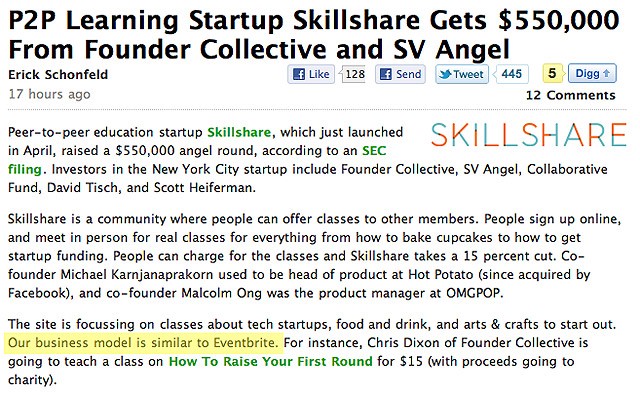
As noted, this Techcrunch story on a new startup called Skillshare was assembled in a highly unusual manner. (Or a very usual manner.)
Unconfirmed Remarks About Dick Cheney Have Ring Of Truth
“Cheney was a dick in several ways. He was always late, 15 min at least. He never saluted except in one occasion when there was mass publicity. He was always grouchy and left a mess in the helicopter. Also, part of our job was making sure the back of the plane was stocked with snacks and whatnot and he would take every packet of peanuts he could find! I even tested it one time and I put 12 packs, 12!, in the back…all gone.” [Via]
My Two Days as a Russian Tabloid Sensation
by Michael Idov
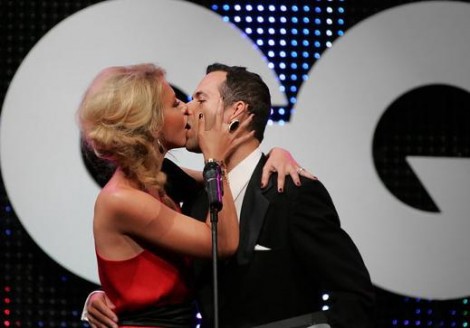
Had I bothered to put “walk through Moscow in a tuxedo” on my list of things to do in this life, I could now safely check it off. The sidestreet in front of the theater was a static maze of Benzes and Bentleys, with no place to pull up. Arriving as I was in a regular taxi, the jam gave me a face-saving chance to get off around the corner and hoof it to the red carpet from there.
The Russian GQ had rented out the theater, a hideous 1990s edifice glowing at the sidestreet’s end, to hold its Man of the Year awards: “the unofficial start,” in the breathless tabloid formulation, “of Moscow’s social season.” In New York, I don’t usually get to such events without a reporter’s pad. Here, I couldn’t have a deeper cover if I tried. I was a nominee in the Writer of the Year category.
A few months earlier in 2010, my novel Ground Up had come out in Russia, translated by my wife and myself and rechristened The Coffee Grinder for want of the needed pun in the Russian language. It only sold a few thousand copies, but they seemed to have been the right few thousand copies. There is a certain kind of Muscovite, mostly young, mostly employed in mass media, that eats and breathes New York; they glommed onto the book, which details a yuppie couple’s misfortunes on the Lower East Side, like it was Sex & the City — a guide in the guise of a novel. Given the demographic, the ratio of readers to reviews was close to one.
The other nominees in my category were Sergei Zhadan, Roman Senchin, Mikhail Elizarov, Andrei Astvatsaturov (whose last name I, in case I got the chance to thank the other nominees from the stage, had practiced for hours), Aleksandr Terekhov and Pavel Pepperstein. They comprised a remarkably accurate cross-section of the modern Russian literature.
There are two kinds of serious novel in Russia right now: “extreme” and phantasmagoric. The first kind deals with the most wretched dregs of the society, which by implication stand in for the society as a whole. The reader, trained by decades of Aesopian Soviet satire, knows that if the novel’s action takes place in a mental ward, that mental ward is Russia; if it’s a prison, the prison is Russia; if it’s a tiny Siberian village populated by, say, cannibals, the village is Russia and the cannibals are the government.
The second kind is a conspiracy fable, devoted to the thesis that the world is run by shadowy magic forces. Supernatural cabals figure in a staggering percentage of Russian highbrow prose — Pavel Krusanov’s Angel’s Bite, Vladimir Sorokin’s Ice, and just about everything by the bestselling Viktor Pelevin, whose 1999 satire Generation P (published in the U.S. as Homo Zapiens) explained that the world leaders are CGI cartoons. In Pelevin’s three subsequent novels, the world government is revealed to be, respectively, a gay mafia, werewolves, and vampires. This mode of thinking has a rather touching teenage tinge. Earlier this week, when the culture portal OpenSpace.ru asked prominent Russian intellectuals to respond to bin Laden’s death, half dutifully answered that bin Laden had never really existed, or was a projection of “naively dualist American consciousness.”
A week earlier, I had asked novelist Alexander Garros — one half of the well-known Garros-Evdokimov writing duo and, conveniently, my high school classmate — how this happened: why, instead of Tolstoy and Dostoyevsky, Russian scribes in the 21st-century find bedrock inspiration almost entirely in Gogol. Garros was the right man to ask. His and Evdokimov’s debut novel, Headcrusher, was about a man whose life becomes an ultraviolent computer game.
Alexander and I had stood on the rickety balcony of his Stalin-era apartment building, overlooking a dark bight of the Moskva river. “I mean, don’t you want to write a novel,” I asked, “about, God, I don’t know, some group of idealistic Muscovites slowly getting corrupted by the 1990s’ crime and the 2000s’ money?”
“Sure I do,” said Garros. “But you see, when you start writing out the details of everyday Russian life, the absurdity just overwhelms you. At some point, you give up. Your characters start flying around, they sprout fangs and tails. Because that’s the only way to stay true to the material. Russian reality is too phantasmagoric to fit into realist logic.”
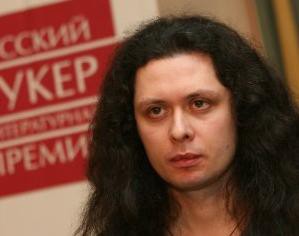
My fellow nominees for Writer of the Year provided a good illustration of his thesis. Senchin and Elizarov were realists, but only in the Russian sense. Elizarov once wrote a novella called Nails, which culminated in the main character (an adolescent mental-hospital patient) eating his dead friend’s (another patient’s) fingernail, and dying from cadaveric poison. In interviews, he and Senchin showed a brutally nationalistic bent and were considered “fascists” in the more genteel literary circles. “For instance, I hate gays,” said Elizarov in a recent interview. “I’m not going to stand up and cheer when the TV tries to convince me that they’re good and talented. My job is to uphold the right of the people to say the same. But since I’m craftier than our government, I can do it in craftier ways.”) Pepperstein was also “anti-American,” but in a cerebral, postmodern, French fashion: in quotation marks. He was as famous for conceptual paintings of Uncle Sam and Pepsi cans and American flags as he was for his avant-garde novels, which bore titles like Mythogenic Love of Castes and The Swastika and the Pentagon and jumbled fairytale, propaganda and pornography archetypes. (His contribution to OpenSpace’s bin Laden discussion: “I listened to Obama’s speech. Charmingly childish. Very Lion King. I didn’t like it. It could have used more gags, like ‘The Simpsons.’”)
Terekhov, for his part, wrote an 800-page historical novel about a Stalin-era murder case that one reviewer called “fantastically unpleasant, not to say revolting.” It was meant as praise.
Among this bunch, The Coffee Grinder looked like a city dandy arrested for jaywalking and thrown into a holding cell with hardened criminals: skinny, overprivileged and profoundly hateful. It’s probably why it won, too.
I had known about the results for three months. The Man of the Year winners were supposedly decided by readers’ online vote right up to the day of the ceremony; the vagaries of the long-lead publishing cycle, however, meant that in order to get the winner’s photo and profile into the right issue, the magazine needed to interview and shoot him well before the official end of the voting. “You have a commanding enough lead,” the magazine’s marketing director had told me. She sounded a little embarrassed.
I tried to play along, but judging by friends’ winking commentary, the cat had been completely out of the bag for weeks before the awards. It thus felt crushingly fake, the whole thing, which is the way a Russian feels about every public surface of life: politics, media, table manners. In the Russian mind, and more often than not in the Russian reality, things like awards and elections are all a paper plastered over a yawning chasm, a lie to distract from the Real State of Things, which is unspeakably tragic and accessible only by chucking social convention (and thus accessed nightly, through drink and cocaine and hashish, by everyone around me). This, perhaps, was what my accidental competitors were writing about, and what Garros meant. They were right — and I would reap the benefits of my collusion with the absurd. I may not have been about to grow fangs, but I’d already sprouted tails.
* * *
“Now Yuri is a real star,” said someone loudly. A big black Mercedes behind me had just disgorged Yuri Nikolaev, the wizened former anchor of a Soviet song-and-dance program called “The Morning Mail.” “Anyone can roll up in a Benz nowadays. Yuri had one twenty years ago” — when it required staggering amounts of financial, political and social juice. The platoon of red-carpet photographers turned around to snap Yuri, and I was able to sneak inside the theater unmolested.
The vast foyer crawled with what I assumed were celebrities. The women were dressed impeccably; the men, forced into tuxes, looked miserable. I imagined them clawing at their bow ties when nobody looked, like a cat in a new flea collar. The bar proffered a muddy “exclusive” variation on the Bramble cocktail, called the Black Tie. I took one and watched the crowd. Every once in a while, a ghost of my Soviet childhood would flit by — a face half-remembered from television or an LP cover, plus twenty years of hard living, minus the same in plastic surgery.
The rest were someone’s children. Sofiko Shevardnadze, the socialite granddaughter of the last Soviet foreign affairs minister, strolled in a scarlet dress past Ksenia Sobchak, “Russia’s Paris Hilton.” She is the daughter of the Leningrad mayor who’d given Vladimir Putin his start. Sobchak waved to Fedor Bondarchuk, a glamorous filmmaker who happened to be the son of Sergei Bondarchuk, the Soviet director who’d once been given a blank Kremlin check to film War and Peace. Muscovites harbor a genuine dislike of their social scene — not the eye-rolling tolerance New Yorkers have for the Upper East Side debutante set, but actual burn-the-mansion hatred — and I began to understand why. Here we were at the tail end of 2010, with Russia rounding up its second decade of capitalism, and every diamond in every earlobe was still traceable back to the great big trough of government connections.
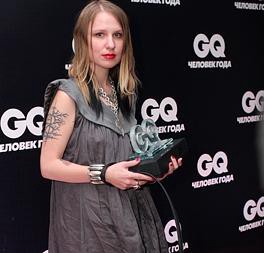
I was relieved to see Valeria Gai Germanika. A wildly talented young filmmaker, she was a nominee in the dubious “Woman of the Year” category. Germanika’s was a much more interesting case than all the heiresses’ and scions’ around her. Hailed as a genius after her very first picture, a minimalist, shaky-cam high school film Everyone Will Die and I Will Stay, the 24-year-old woman was feted so much that she immediately went into a full diva mode, throwing tantrums and walking off sets and dressing like Lady Gaga before even starting a second film. In a way, she would not even have to start it now: she had fully found herself as an all-purpose celebrity. Tonight, Germanika came in massive diamonds and a baggy metallic dress that showed off her bicep tattoo of a violin clef. She brought along a shivering Chinese Crested named Moni. The dog wore a more casual denim ensemble.
I came up to Germanika to tell her that I really wanted her to do It’s Me, Eddie. This was, I knew from interviews, her dream project: a film adaptation of the 1976 novel that made a celebrity of Eduard Limonov. Eddie was a chronicle of New-York-a-go-go decadence as experienced by a Russian outsider. The main character, a broke and horny poet living in a grim SRO, mostly details his sexual conquests. It culminates with a scene forever seared into every reading Russian’s brain: a tussle with a black thug that somehow turns into oral sex. (In France, the book came under the title Le Poète Russe Préfère les Grands Nègres; the Germans published it as Fuck Off, America). It wasn’t a coincidence that the book came out the same year, and wallowed in the same milieu, as Martin Scorsese’s Taxi Driver: in Eddie, Russians had their own Travis Bickle.
And it was a perfect fit for Germanika’s sensibilities. But, alas, in the 1990s, Limonov had become a political opposition figure, which meant that no producer in Russia would lend a kopeck to a screen version of one of his novels. This detail hadn’t even occurred to me: the faraway prancing Eddie of 1976 and the current “National Bolshevik” blowhard Limonov hardly even seemed like the same person. The novel was 34 years old, and Limonov wouldn’t even get paid for the rights — he waived his fee for Germanika, lest she were accused of enriching him. And still she couldn’t find the funding.
“Take me to New York with you!” Germanika cooed as soon I told her I was from the city and I really wanted her to shoot it there. “Marry me and whisk me away from here!” She had a manner about her, grand dame inching toward drag queen: a kind of ironic hyperfemininity at the edge of the vapors. It was a fun performance. “I’ll do anything! I will wash your floors! I will babysit your children!”
“Well, maybe not that one,” I said. “But I’d love to help out somehow. I’m a big fan. I’d tell you all sorts of compliments but I suspect compliments are not your thing.”
“My thing,” said Germanika, “is black bogs of despair.”
At this point, not a second too soon, we were ushered from the hot lobby into the somewhat cooler theater itself. The fake awards got underway.
The opening montage, set to a live suite conducted by Vladimir Spivakov, was a quick refresher on the main events of 2009–2010. It was an idiosyncratic mix of the tragic and the trivial, and a pretty handy document of what the Russian view of the year was. President Medvedev’s first tweet; Cameron’s Avatar; a militia officer slugging a protester on the Triumfalnaya Square; Icelandic volcano, belching smoke; Gulf Coast oil slick; smog over Moscow.
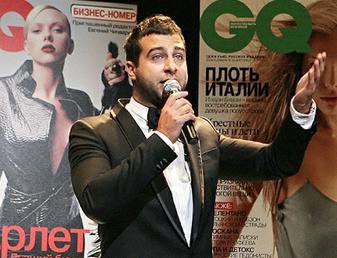
Ivan Urgant, the event’s young, slightly Middle Eastern-looking emcee, started with a bit that merits transcribing.
“We have gathered here tonight to celebrate,” he began, stumbling on the magazine’s title, “the whatchamacallit — I forgot. And why, come to think of it, should I remember? All these ceremonies have melded into one in my mind. Same two hundred people in every auditorium. You’re all showing up in my dreams by now. I know everything about you, and you about me. Must we keep this up? I didn’t go to college for this crap, I’m an artist! Uskov,” he continued, addressing the magazine’s editor in chief in the front row, “aren’t you a historian by education? And what have you done with your life? Why are we lying to each other right now, acting like we don’t know who’s going to get these awards? Everyone knows everything! Do something genuine for once. Skip a shave. Buy a shirt from Zara. Christ.”
The laughs were scattered and tentative. Just when I thought Urgant’s scripted freakout was over, it revved up in earnest. “Enough! Admit it, we’re all sick of this! Let’s all get up and march out of here! Come on! Do it!” he bellowed, pacing up and down the stage and eventually descending into the audience to grab a female plant’s designer clutch and tear it apart. (The punch line: an Federal Security Service officer’s ID inside). The bit ended with a rotund older sidekick stepping from the wings to remind Urgant how much he got paid for his appearance. “There, there,” the sidekick cooed. “Think of your country house. Think of your BMW.”
If the routine wasn’t very funny, it wasn’t really meant to be. It was disgust masquerading as a bit masquerading as disgust, and it infected the entire evening. The first two presenters, actress-director Renata Litvinova and ballet star Nikolay Tsiskaridze (“the only ones who would get on this stage for free,” Urgant said, belaboring his point), caught the same bug and could barely make it through announcing the nominees. Their derisive snorts and blatant eye-rolls accompanied every name.
The second duo, announcing TV and cinema categories, was a stranger one: Sergei Selyanov, a big-time producer, and Irina Hakamada, an opposition politician. I later learned that she had been put onstage as a last-minute substitution for another presenter. It was an awkward fix to say the least: Hakamada had been blacklisted by the state-owned Russian TV since 2002. “Television doesn’t like me,” Hakamada deadpanned when Urgant asked her whom she liked out of the five nominees in the category.
“I would like to add that I’m also working for free tonight,” she then ad-libbed.
“I got paid for the both of us,” said Selyanov.
It was that kind of night. But then again, every society night in Moscow was like this. The air thrummed with collective self-loathing, the only remedy for which was cynicism: one could fully relax only when everyone around was impugned equally and there was none left to judge. The meshing gears of contempt and complicity, with me a passive cog.
* * *
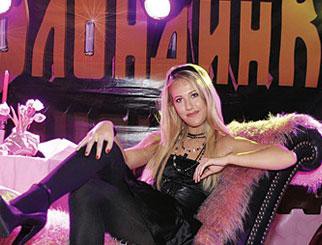
My category’s presenters were Igor Krutoi, a shaven-headed pop composer and impresario with the look of a retired thug, and Ksenia Sobchak in a fire-red dress. Sobchak, as I’ve mentioned, was the daughter of a Leningrad mayor and a kind of Paris Hilton manquée. Her last name put her as close as the New Russian society gets to old money, and her exhibitionist streak did the rest: she was now a self-perpetuating tabloid fameball, covered today because she was covered yesterday, her every dalliance and feud spelled out in smeary block type. Instead of pop celebrity, however, Sobchak’s ambition ran to more complicated ends. Her dream was to be taken seriously, in any medium. She gave public talks. She hosted TV shows. A month or so earlier, she had put out a book called The Encyclopaedia of the Lokh, a satiric taxonomy of the titular creature. (“Lokh” is a Russian slur whose meaning resides in the sad space between “sucker” and “loser”). “The sweet lokh,” she wrote, in not-bad prose, “is the main ornament of our social skyline. It is in him, for the lack of anyone better, that our nubile kind finds an inexhaustible wellspring of genuine and unmediated experience.” She also flourished as an ace interviewer, coming on as a naïf and then asking sharp questions. (It is admittedly easy to be fearless when your dad gave Putin his first job). Still, the intellectual Moscow was wary of her and eyed her as a weird intruder, like a group of high-school misfits unsure why the prom queen wants to sit with them at lunch. Recently, trying to say the word “existential” on air — in itself a telling detail — Sobchak had tripped up and said “existentional.” This malaprop caused squalls of mirth around Café Mayak and Jean Jacques. In a way, the bohemians were as nasty to Sobchak as the tabloids; she was dead stuck between two worlds. “I consider her a tragic figure,” Andrei Loshak, an opposition TV reporter, once told me, without a trace of irony.
Even knowing the award was mine, when Sobchak announced the seven nominees for best writer I experienced a combo of goosebumps, sweats and dry mouth. I wasn’t afraid of a last-minute switch; I was more worried about what I was about to do myself. The thing was, minutes earlier I had decided to use my time onstage to lobby for Germanika’s It’s Me, Eddie. Why the hell not, I thought. Might as well make this memorable. Plus, the venue seemed receptive to mild dissent. The evening’s opening montage included shots of the Triumfalnaya Square protests, which was far more subversive than what I was going to do.
“And the writer of the year is Mi — “ said Krutoi with zero enthusiasm.
“You look like you’ve read all of those books, Igor,” interjected the emcee.
“Oh, yeah, right,” scoffed Krutoi. “So, anyway, the writer of the year is Michael, uh, Michael Idov.”
I trotted onto the stage, accepted the Plexiglass letters G and Q and an expensive watch that came with them (the sole, triumphant thought that crossed my mind at that moment: eBay), and launched into my spiel. At first I concentrated on one task: thanking all six other nominees, one of whom, I repeat, was named Astvatsaturov. “And finally,” I said, breaking out in sweat once again, “I’d like to think that there’s a person in this room with enough bal — uh, guts, to finance Valeria Gai-Germanika’s next movie, It’s Me, Eddie. Thank you all.” Hey, that went well! I turned to leave the stage with my loot.
“Wait, where are you going?” said Sobchak. “Haven’t they told you?”
“Michael, it’s a trap,” said Urgant. “Go. Go now. The dragon has chosen her victim.” Little puddles of laughter were pooling in the crowd. I knew I was walking into something, a skit of some sort.
“As many are aware, Michael,” continued Sobchak, “I have a certain tradition here at the GQ awards. Every year I pick the best-looking man and bestow upon him my kiss. This year, I have picked you.”
With these words, Sobchak grabbed me and kissed me on the mouth. Dozens of cameras snapped away, ornamenting the periphery of my vision with silvery flashes. The center, meanwhile, was taken up by a red-and-blonde blur with tongue. It was not unpleasant. In fact, she initiated the withdrawal, as this lokh kind of got into it. The whole thing lasted seven or eight seconds.
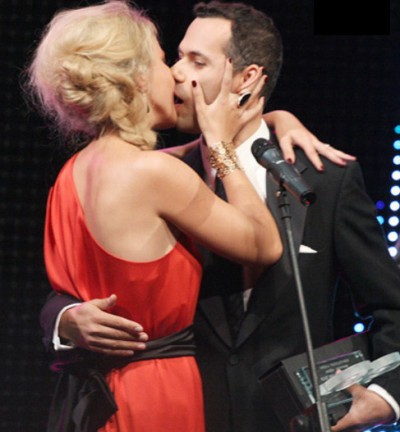
“Well,” I said into the microphone, catching my breath and rather uncinematically wiping my mouth, “At this point I think I should also thank my wife, Lily.” The line killed. I happily retired backstage to pose for a line of photographers with my prize and, in a courtesy to the evening’s sponsors, a bottle of French vodka. Then I came back to watch the rest of the show, which ended with a live reggae musical number.
As we pushed toward the exits in the narrow aisle, Alexei Kazakov, an executive at the channel that would be broadcasting the awards later in the week, slapped me on the shoulder. It was not a friendly slap.
“Thanks a fucking lot, man,” he said. “Thanks a whole fucking lot for the Eddie thing. You really fucked me on this one.”
“I’m sorry, I had no idea,” I said.
“Limonov’s name is one of, like, five taboo words on TV.”
“I didn’t say Limonov’s name!”
“Doesn’t make a difference.”
“You can cut it out of the broadcast.”
“Yeah, well, I don’t want to cut it. But you’ve put me in the position where I have to be the asshole and cut it.”
An hour later, though, Kazakov cheered up. From the afterparty chatter, it was fast becoming clear that the Sobchak kiss was the highlight of the entire evening. The crowd, whittled down to fifty or so luckiest invitees, had moved over to a restaurant called, with remarkable simplicity, Meat Club. Before me stood a plate with a filet mignon the size of a fez; sitting across the table was Sergei Minaev. He was the first Russian author to wangle a million-dollar advance. I knew this because he had just told me, between bites of steak.
Minaev’s novels were about Moscow nightlife: cocaine lines off toilet bowls, that sort of thing. Before becoming a bestselling writer, he was a successful businessman, and immediately parlayed his new fame into a small empire of media properties. Minaev owned a publishing house and hosted talk shows on television and radio, using each of these platforms mainly to promote his own work. Throughout it all, he had kept his day job, which was importing high-end liquor. The award, and Sobchak’s kiss, had clearly elevated me to a whole another stratum. Forget Astvatsaturov and Pepperstein. Now I got to hang out with writers like Sergei Minaev.
“You know, Misha, right now you have a chance to make a very decent career,” said Minaev with a godfatherly inflection. He wiped his hand with a napkin, finger by finger. Then he gave me his business card.
* * *
Next morning, a hungover Yandex search for “idov + sobchak” netted 1,700 hits. The kiss was everywhere. The morning after that, it reached print. Ksenia Throws Herself on Married Man. Ksenia Sobchak Pushes Writer to Cheat on Wife. Sobchak Kisses Another Woman’s Husband. Sobchak Seduces Married Writer in Front of Spouse. (My wife was 2,000 miles away). For some reason, the two trashiest and most vicious Moscow tabloids today used to be Young Communist publications in the Soviet era: the Komsomol Truth and the Moscow Komsomolets. Neither has changed its old title (“Komsomol” un-portmanteaus into “Union of Communist Youth”) or logo, which in the case of the Truth incorporated an Order of Lenin. Except now Lenin presided over such items as “Fresh Pix of Planet’s Hottest Butt.”
The Komsomolets even included a fabricated quote from me. I supposedly told them, “in an exclusive interview,” that my wife was intelligent and reasonable and she’d understand. I suppose that’s how tabloids get away with it: by having you say things you’d feel idiotic refuting. What was I going to claim: “I never called my wife reasonable?”
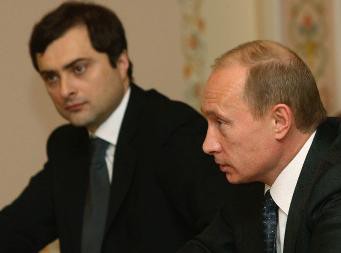
The establishment was embracing me as a sort of plaything. I was invited to an event thrown by Vladislav Surkov, Putin’s grey cardinal who famously liked to keep tabs on “culture.” I went to a channel called TVC and taped a groggy hit for their morning show. “No questions about Sobchak, please,” I overheard my publisher’s PR girl instruct the segment’s producer, as if I was Katie Holmes or OJ Simpson — someone with verboten topics of my own.
My friends, meanwhile, were uniformly disgusted. In the circle of young liberals with whom I had fallen in, people like Minaev were deemed nerukopodavaemyi — a great synthetic word that means, literally, unshakehandswithable. Shakehandswithable people ate at Mayak, not Meat Club. TVC was a despised channel: a slush fund, someone indignantly explained to me, for Moscow’s mayor Yuri Luzhkov and his buddies. My new patron Nikolai Uskov, the editor of the Russian GQ, was slightly suspect too, for reasons unknown. In short, Sobchak’s toxic aura had rubbed off on me. I was doing everything wrong. Back in New York, my wife, while every bit as understanding as the Moscow Komsomolets had presumed, was not exactly delighted either, objecting less to the hoopla itself than to the horrifyingly fake aw-shucks attitude I had adopted in response to it. In short, everyone agreed that it was a good idea for me to lay low for a while.
So I did just that. I even suspended my Facebook account. The incident pursued me for a few weeks more, and then it blew away in the news-cycle gyre. Sobchak kissed someone else (I felt a pang of jealousy); GQ threw another party hosted by Urgant. My fameball moment’s last faint echo came in December, when an FM station called Love Radio nominated it for “Kiss of the Year.” Sobchak and I handily lost out to Lady Gaga and Harry Potter (kissing their respective partners, that is, not each other). It is, however, still the first thing that comes up if you search for my name in Russian. The Coffee Grinder — the book that put the whole pinwheel in brief sparkling motion — rates second.
Michael Idov, born in Latvia, is a contributing editor at New York magazine and a frequent guest of Moscow. If he ever gets to writing a book about the latter, this will be a chapter in it. Meanwhile, his Made In Russia: Unsung Icons of Soviet Design, a photo collection of alternately modish and sad Soviet stuff, is out from Rizzoli. Idov also has an electropop band, because why not, called Friends of the Oval, whose first EP you can steal here.
Ian Ziering Lands Plum Role In Statutory Rape Comedy
I recently speculated that Ian Ziering’s searing performance as Steve Sanders left the actor so identified with the role that it had a detrimental effect to the furtherance of his career, but I am happy to report that he is still going: “’Beverly Hills, 90210′ alum Ian Ziering may not look anything like Adam Sandler, but that won’t stop him from playing the comedian in the Columbia Pictures comedy ‘I Hate You Dad.’ Andy Samberg stars as Sandler’s estranged son, whose birth was the result of a statutory rape, as an underage Sandler impregnated his teacher. Ziering is set to cameo as himself playing Sandler’s character in a TV movie within ‘Dad’ that concerns the controversial copulation.”
Daniel Domscheit-Berg And WikiLeaks' Insecure Future
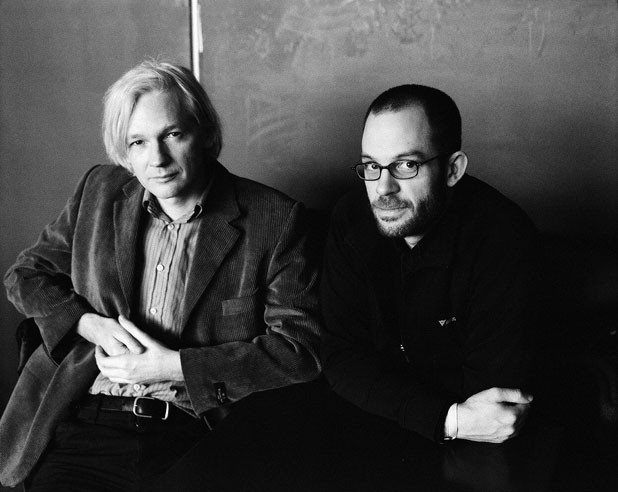
With all the hoopla that seems eternally to surround WikiLeaks founder Julian Assange, one might easily have formed the impression that WikiLeaks is a thriving concern, and that Assange himself is still the world’s most powerful and effective champion of press freedom. While it’s true that WikiLeaks has accomplished great things, initiating a powerful worldwide movement toward transparency and free speech, a closer look reveals that recent defections have badly crippled the WikiLeaks organization and that the increasingly erratic, mercurial Assange may have shot his bolt. The defectors have moved on and are developing a successor site, OpenLeaks, which seems likely to take up where WikiLeaks left off.
WikiLeaks has been unable to accept submissions of new documents for over six months. According to former WikiLeaks spokesman Daniel Domscheit-Berg’s recent book, Inside Wikileaks: My Time with Julian Assange at the World’s Most Dangerous Website, that is because WikiLeaks is no longer in possession of the secure submission platform built by a programmer identified in the book only as “the architect.” Both Domscheit-Berg and the architect broke with Assange in September 2010 along with at least four other staffers. When he departed the architect apparently packed up his intellectual property and took it with him — since he felt that WikiLeaks was not being run properly, taking his software back meant that at least he couldn’t be held responsible for any disasters arising from its use.
This submission system is a maze of encryptions and techno-obfuscations spread across a worldwide network, designed to make the identity and whereabouts of potential whistleblowers completely untraceable. The implementation of such a system is far more difficult than it might sound. A few things are absolutely necessary in order to prevent all kinds of mess from occurring, both for the leak sites and for the informants they enable. First, there must be no earthly way of knowing where the material comes from, not even under the legal compulsion of a government or court. Second, the material has to be encrypted, so that it can’t be read by anyone who might want to steal it. Third, the material has to be kept absolutely secure, backed up in many safe places. This is the sort of system eventually devised by the architect on behalf of WikiLeaks, before he became so furious with Julian Assange that he pulled up stakes and vamoosed.
Other whistleblower initiatives such as the Al Jazeera Transparency Unit, BalkanLeaks
et al. ask (but do not always require) that those submitting documents use the anonymous Tor network to transmit their material across the web. GreenLeaks, which is focused on environmental issues, requests submission by post: you put your stuff on a pen drive and send it along in the mail. You’d think that even one of Len Deighton’s lowliest goons could foil this system (wait by mailbox in trenchcoat, etc.), but what the GreenLeaks submissions strategy really suggests is the vulnerability of Internet traffic to detection. This group has decided that, for the moment at least, the ordinary post is safer.
It seems unlikely that just using Tor servers would be enough to protect a source’s anonymity completely. Apparently it is possible to track users coming in and out of the Tor network, for example. Though a knowledgeable computer user could protect himself by using anonymous public Wi-Fi connections and so on, until OpenLeaks (or equiv.) is online and able to offer a securely anonymous system for submissions, would-be whistleblowers will be taking more than the ideal zero amount of risk by sending their information over the Internet.
Packet-sniffing technology was scary enough ten years ago. Today it’s safe to assume that determined parties can track nearly everything that takes place online. With the kind of heat there must be on every stray packet that even brushes up against the various WikiLeaks domains, it would be crazy for them to accept submissions until they’ve rebuilt a new, rock-solid system. Thus the architect’s departure last September meant that WikiLeaks could no longer accept new documents safely.
In a sense, WikiLeaks has been closed for business since that day.
I don’t know exactly why, as of the end of 2010, three months after our departure, the system is still not really back up on its feet. It shows that the current team is overtaxed and perhaps, to some extent at least, just not up to the job. It also shows how unsecure the system is. It has become a security risk for everyone involved.
— Daniel Domscheit-Berg, Inside WikiLeaks
***
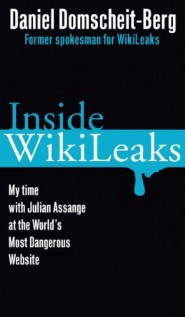
Inside Wikileaks received decidedly mixed reviews after its publication in February, and it’s true the book shows signs of having been written and edited in some haste. Still, posterity might well come to regard this book very highly; it’s an unusual document in which the worlds of politics, technology and media theory collide.
Many commenters seem to have felt that the author of Inside Wikileaks comes off a bit like a jilted lover; certainly there’s no shortage of wild anecdotes about Julian Assange in this book. We see the eccentric Australian sliding down banisters, borrowing a jacket off his host so that he can feel “in character” while writing an important press release, and then falling asleep in the jacket; taking more than his share of the Spam (tinned variety); being given five minutes to make a speech and taking forty-five; getting into a pointless shouting match with a gang of conductors on an Italian train; in constant terror of being watched and followed; and being dubbed the “Disco King” by amazed Icelandic lookers-on in a nightclub. (There’s video online of Assange’s amusingly prowly dance moves, quite possibly from the evening in question.) And there is a lot of far more serious criticism, as well.
Anyone who’s ever worked with a brilliant and capricious egotist will find much of Domscheit-Berg’s description of Julian Assange very familiar. For example, Assange was apparently annoyed whenever Domscheit-Berg was described as a “founder” of WikiLeaks. Given that Domscheit-Berg busted tail like one, quit his day job and used the severance money to buy servers for the project and dedicated every waking moment to the organization starting from before even the Julius Baer revelations of 2008, you’d think that Assange would have been happy to call him a founder. But no. Domscheit-Berg’s version of events is here quite credible, for Assange’s public pronouncements have often bordered on the megalomaniacal. In private, they bounded right over that border; he once wrote to Icelandic WikiLeaks volunteer Herbert Snorrason, for example, “I am the heart and soul of this organization, its founder, philosopher, spokesperson, original coder, organizer, financier and all the rest. If you have a problem with me, piss off.”
This high-handed tone seems to have been his way of dealing with disagreements generally, even with his closest associate, Domscheit-Berg, whom he allegedly threatened regularly with destruction, imprisonment, etc., toward the end of their association.
“Thankfully, there’s no ‘founder’ at OpenLeaks. I never want to have to discuss this issue again. A lot of people have contributed to the development of the idea, and they are all originators.”
— Daniel Domscheit-Berg, Inside WikiLeaks
Domscheit-Berg does not emerge from his own book without stain. He admits his complicity in a lot of shenanigans, most seriously in lying like a rug about the number of people involved in vetting most of the documents WikiLeaks received before publishing them. One wonders how many of those who submitted documents to the original site would have run the risks they did had they imagined that the organization was so small and so vulnerable; how close they might have come to the cell adjoining Bradley Manning’s.
Until late 2009, no one except Julian and I checked the vast majority of documents that had been submitted. Strictly speaking, we weren’t lying when we said we had a pool of around eight hundred volunteer experts at our disposal. But we neglected to mention that we had no mechanism in place for integrating them into our workflow. […] Instead, Julian and I usually checked whether documents had been manipulated technologically and did a few Google searches to see whether they struck us as genuine. We could only hope that things would turn out all right […] We were acting irresponsibly, playing a risky game with our sources’ trust and our supporters’ donations.
This naivete is shocking, coming from such a brainy character, until we recall that Domscheit-Berg was 28 years old in late 2007, when he first volunteered to join WikiLeaks. Only imagine what a clever political saboteur might have done with this near-zero-fact-checking system. It’s fortunate that their luck held for long enough that these weaknesses could be addressed.
The two also told a lot of fibs about the security and reliability of their original network. It’s stunning to learn that the whole of the WikiLeaks system originally resided on one creaky old server. In its early days, WikiLeaks could easily have been taken down by a single guy armed with a can of Coke, and I don’t mean MacGyver, I mean really anybody with a can of Coke and the tiniest bit of ill will.
Before I read the book, I had thought that the rift at WikiLeaks was mainly a philosophical one. Both men believe passionately in “subjecting the power that is exercised behind closed doors to public scrutiny,” as Domscheit-Berg puts it. Both share a love of anarchist politics, as well; Domscheit-Berg calls Proudhon’s What is Property? “the most important book ever written.” But their approaches could not be more different. The reckless Assange likes to make a splash, while Domscheit-Berg is unflappably cool, quiet, restrained and logical. Literal almost to a fault. He’s a bit like Mr. Logic from the Viz comics. Here’s one example of this almost comically precise mind in a jocular mood:
Along with trying to found a global anticensorsip movement, I had assigned myself another job, perhaps the toughest of my life. I had gotten T-shirts printed with the WL logo. Because I thought our logo stood out best that way and because I wanted to save two cents per T-shirt, I’d ordered them in white. That was idiotic. Who buys white T-shirts? Especially in a social clique where black T-shirts are something of a dress code. I myself had never worn a white T-shirt in my entire life!
Clearly, there is room for legitimate differences regarding, to give one example, how much of the raw material submitted to Wikileaks might have been edited and contextualized for splash-making purposes. But the rupture between Assange and Domscheit-Berg seems to have gone far deeper than this. Assange, according to Domscheit-Berg, eventually demanded absolute control over every aspect of WikiLeaks operations, from financial management to publicity and even to deciding what revenge to take against journalists who wrote unsympathetically about him or the project. He became an ever-looser cannon.
Also of interest is the fact that Birgitta Jónsdóttir, the activist and member of the Icelandic Parliament who worked closely with WikiLeaks representatives and others in Iceland to spearhead the IMMI laws that will create a global haven for press freedom in that country, has also broken with WikiLeaks. She gave a revealing interview to the Belgian journalist Dominique Deckmyn that appeared in De Standaard in late February (this excerpt’s translation has been revised by Jónsdóttir; the full and, she says, somewhat less accurate translation appears on Cryptome.)
DD: Are you still in touch with the WikiLeaks people?
BJ: No, only with former WikiLeaks people. I am in touch with Daniel (Domscheit-Berg) and some others, although it is hard to define who does and does not belong to WikiLeaks now. Some people are semi-active or not at all active, and some people want never to talk to Julian Assange again.
DD: The organization is identified with Assange personally in the media. Do you regret that?
BJ: What is a pity is that the messenger has turned into the message. That means that the documents have not been paid the attention which they deserve. I no longer know how often I have refused to collaborate on yet another portrait of Julian Assange. It has come to revolve too much around one person, one hero, one messiah, even: That is what he is called on [one of the fan pages on] Facebook [http://www.facebook.com/pages/Assangeism-The-New-Religion/169890589708692}. It is almost a new religion, but that is certainly partly the media’s fault. They have decided to create a new Icarus myth; they have blown a great deal of wind under Icarus’ wings instead of focusing their attention on the real story — the contents of WikiLeaks. That has a great deal to do with the situation in which the media currently find themselves. They are seeking as many clicks as possible, and the stories which get the most clicks on websites are usually about scandals of a sexual nature or mishaps of famous people.
None of this takes away from Assange’s courage, nor from the success his efforts have met with in revealing corruption and wrongdoing. It is sobering to consider the stresses under which he has lived, his nomadic existence, and also that there is no doubt that this man has made a staggering number of very powerful enemies who would like to see him jailed or worse. In the circumstances it’s hardly surprising that he would crack up some.
This whole story uncomfortably recalls that of Greg Mortenson, the best-selling author of Three Cups of Tea and founder and director of the Central Asia Institute, a charity that has raised millions for building schools in Afghanistan and elsewhere in Central Asia. Jon Krakauer and “60 Minutes” recently discredited Mortenson, another charismatic and mercurial figure loved by many, by producing convincing evidence that he has misappropriated funds and done a terrible job of operating and maintaining the few schools his charity has managed to build.
Mortenson appears to have come to believe that his unique value as a fundraiser and spokesman raised him above such petty concerns as ensuring proper management and accounting practices at the Central Asia Institute. He was on my mind a lot as I studied the career trajectory of Julian Assange. This is such a common story among fallen religious leaders, fallen politicians. How easy it must be to rationalize all one’s bad behavior with the idea that all you are doing is for the greater good. The cause is just, you are “indispensable,” you have a plenary indulgence.
Then, because all you do is always for the greater good, such lies as you choose to tell are spotless, too. As it happens, Assange’s old hacker name, “Mendax”, means “liar” in Latin.
***
There’s still a lot of friction between the former partners. It flared up again recently when WikiLeaks sent out this Twitter on April 24th:
Domschiet, NYT, Guardian, attempted Gitmo spoiler against our 8 group coalition. We had intel on them and published first.less than a minute ago via web
WikiLeaks
wikileaks
Why should an organization dedicated to press freedom care two pins about who published first? Also, this seems a rather transparent attempt to accuse Domscheit-Berg of having leaked the Guantánamo documents to the New York Times and the Guardian. (WikiLeaks had been working with the UK Telegraph and the Washington Post on this material, and they promptly published their own work after it became clear that other organizations were getting in front of them.)
It’s true that Domscheit-Berg is no fan of the exclusive deals WikiLeaks has made with press organizations, having frequently said that this practice robs WikiLeaks of its neutrality, and reduces it to a tool of big media. It’s also true that Domscheit-Berg has shown himself to be more than equal to telling a useful fib, from time to time. On the flip side, though, WikiLeaks does not exactly lack for disaffected staffers who might well believe the Guantánamo material ought to have been released long before now.
Just by chance I was already in touch with Daniel Domscheit-Berg in preparation for a more general analysis of press freedom issues when this tweet came over the wire, so I wrote to him asking what the hell, or rather, “What do you think of the idea of ‘spoilers’ in the context of the work you are doing? Aren’t WL and OpenLeaks supposed to be about press freedom, rather than ‘scoops’?” He responded:
I saw that tweet this morning, and must admit I am puzzled. I agree about your statement about the scoops, but even if it was about scoops I have no clue what they mean. I have not had those files and certainly have not been working with anyone on them. Whatever “intel” it is, it sure is bogus.
Bill Keller at the Times clarified some of the questions surrounding their publication of the Guantánamo documents in an email:
It is true that we obtained the material without conditions, except an agreement not to identify our source. That means we were not bound by whatever embargo Mr. Assange put on his “8 group coalition.” I assume “intel” means that one of the inside group (so to speak) picked up information that we were moving toward publication. (I don’t know what tipped them off, but three major news organizations — NYT, Guardian and NPR — moving a big project along make a certain amount of noise.) I gather that somewhat spoiled the plans of Mr. Assange and the other news organizations.
I can’t speak to Mr. Assange’s motives. Sorry.
(Well, you can’t fault me for asking.)
The first WikiLeaks tweet was followed just a few hours later with another.
We are pleased that the NYT, Guardian & NPR eventually added their weight to increasing our impact, regardless of the intent of some.less than a minute ago via web
WikiLeaks
wikileaks
One can’t help feeling, reading these faintly petulant messages, that Assange is putting his ego ahead of the primary goal of promoting press freedom and transparency. And the media complicity in focusing on Assange himself rather than on the cause he serves is paradoxically very damaging to that cause. There’s more than enough reason to believe Daniel Domscheit-Berg’s claim that this is part of the reason why he broke with Assange.
The case of slain Kenyan human rights activists Oscar Kamau King’ara and John Paul Oulu is also instructive on this point. The two men were assassinated on March 5, 2009, in their car in the middle of rush-hour Nairobi traffic; though a statement released by WikiLeaks claimed that they were “WikiLeaks writers,” the career of Oscar Kamau King’ara predated WikiLeaks by many years. King’ara’s Oscar Foundation had been active since 1998 in such issues as providing legal aid to the poor, in promoting children’s rights, in HIV activism and so on.
Human rights organizations, Kenyan journalists and UN investigator Philip Alston were quick to cast suspicion on the police for the assassinations of King’ara and Oulu, because, starting in 2007, the Oscar Foundation had been publishing reports that exposed the extra-judicial killing of thousands of young Kenyans dating from 2002 in an alleged police crackdown on gang activity. King’ara and his associates had been steadily presenting their evidence of the murders in public. Their report was submitted to Parliament in advance of a public debate on the killings. There seems to be little doubt among observers that it is this work, done in the open, that precipitated the assassinations.
It made sense for the Kenyan human rights activists to try to broadcast their findings to the widest possible audience. In November of 2008 a report based in large part on the Oscar Foundation’s work, the Kenya National Commission on Human Rights’s “Cry of Blood,” appeared for one week on the front page at WikiLeaks. This publication brought the Kenyan police abuses much greater attention in the world press, which might be assumed to have precipitated Parliament’s willingness to take the matter up. In June of 2009, Amnesty International gave an award to WikiLeaks and Assange
for furthering the work of the murdered Kenyan activists.
Certainly WikiLeaks was instrumental in spreading the story, but the story itself is not about WikiLeaks. It is about the exposure of Kenyan police corruption and mass murder. It is both disingenuous and cynical to refer to these men, who literally died for their efforts to speak truth to power, as “WikiLeaks writers.” And yet as recently as last month in a panel discussion at UC Berkeley Assange was again implying that their deaths were essentially an attack on WikiLeaks.I
As with Oscar Kamau King’ara and John Paul Oulu, so perhaps with Bradley Manning. There are people who see bad things going on and take a chance, maybe a terrible chance, on ending them by telling what they know.
What finally emerges in the Q&A; with Daniel Domscheit-Berg that follows here is that the value of projects like WikiLeaks and OpenLeaks has nothing to do with drawing attention to one particular story or another. It’s in providing that unbreakable and secret conduit between the media and those who wish to bring hidden information to light. It’s in offering safety and anonymity to people who want to speak out, but who are understandably afraid to do so.
It’s been quite chilling to see the efforts of our own Department of Justice to shut this effort down. They really ought to knock it off with that.
“We in the West have a long and unworthy tradition of choking off attempts at public discussion with reference to some ‘greater good’ that needs to be protected … I am convinced that citizens not only can, but must be burdened with the truth.”
— Daniel Domscheit-Berg, Inside WikiLeaks
Next: An interview with Daniel Domscheit-Berg.
An Interview With Daniel Domscheit-Berg
Most of the newspapers charged with vetting and dissemination of WikiLeaks documents insisted on “exclusivity” of one kind or another. What will the attitude of OpenLeaks be to such demands?
This precise problem is one where OpenLeaks has a very different strategy from WikiLeaks. Our approach also is a direct consequence of some of the lessons we have learned in the past years.
The issue is that one has to work with supporting publishers, news entities, NGOs and whomever in order to have someone putting the material into context. Readers need context, or else leaks just go by unnoticed and cannot make a difference. For this context you need the media, for example, and the media has some of its own business rules, such as a strong focus on breaking scoops. So one cannot really avoid these concurrent interests, but has to find a way out.
The problem WikiLeaks has is that it has to choose who gets the material. This means you lose your neutrality, and create a danger of making politics with how material is publicized, and with whom. The way our system works is that we give control back to the sources. The source decides who gets the material first (OpenLeaks does not accept documents at all, we just facilitate the reception for our partners), and for how long. By that mechanism we can appeal to the scoop-hungry nature of the media business, but can make sure that documents do not remain with one publisher alone, or are not reported on for whatever reason, but do at some point get disseminated to everybody else — just as the source wishes.
Please comment on the question of “ownership” of leaked materials, and on the idea of journalistic “scoops”. What effect do issues of “professional stature”, whether corporate or personal, have on the public’s access to news?
The question of ownership is a difficult one. I do not believe that those documents really belong to anyone but the public. This is where the sources want them to be, and therefore this is where they should ultimately be.
The problem with scoops is not the scoops. It’s rather the information hoarding in the media. Enabling newspapers to have scoops at least contributes to having more resources available for research, writing and so on [because money will be risked on such things in hopes of a wide readership, where it might not be risked on behalf of a non-exclusive story.] So the material has a better chance of being worked with intensively when it’s a scoop, rather than something everybody else has. So while this is good, it’s bad that there is no system for sharing the raw information with other entities or even the public, though. The consequence is that journalists have to write off each other’s stories rather than being able to write their own analyses, and the quality gets worse because there is no need to do the job as well as possible.
So, again, with the dynamics of our system, we are trying to tackle precisely these issues.
You wrote in Inside Wikileaks that the “editorializing” of the Collateral Murder video, even to giving the video this title, was a mistake. Yet the framing of that story created a firestorm of interest both in the world press and among individuals interested in the true conduct (and cost) of the war. What methods do you think are fair ones for helping to bring broader attention to leaked information?
Was that a storm? I don’t know. Maybe I have just become too blind from storm after storm. What I miss is not a storm, but a steady breeze nurturing the windmill driving societal change — not societal hype. Something more sustainable. Consequences, rather than hype for a few weeks.
My criticism was specific to the WikiLeaks role in this. I believe it was important that this editorialized version was done; it was just badly attached to us and confused some people in respect to our uneditorialized publication policy before. All information needs context so that people understand it. The quality of that context is what matters, and I think Collateral Murder was a really good job.
What nation has the fairest press, at the moment, and why?
That’s a very difficult one. I do not consume the press in languages other than German, English and occasionally French. So there is not much I can tell about the quality of the majority of the press in the world. I personally read the German taz and then, depending on the stories, online news. Which can hardly be summarized.
To what extent will OpenLeaks involve itself in identifying and/or vetting the most “interesting” information received, or in helping to frame stories for the press, if at all?
We are not involved in this process at all. For various reasons. First of all, we think it is highly inefficient to reinvent the wheel when it comes to the editorial work involved. There are plenty of existing journalists, editors, publishers, et al. around, eagerly waiting for information. Secondly, once such a mechanism works, and is available for people use it to disclose information, things become much more complex from an editorial perspective. You then need not only lots of resources but also expertise, well-proven standards, and most of all accountability. So again, it makes sense to try and make use of those existing resources and focus on providing them with a tool enabling them to do a good job of enlightening us all.
Is Der Spiegel, or any other publication, involved in any formal way with OpenLeaks?
We are currently in the stage of setting up the alpha phase infrastructure. This phase will include six partners we work with, an even split of media organizations and NGOs. As this phase is mainly aimed at getting some more feedback on the systems we provide, and finish development of a few more tools, we are not going to work with any major news outlets for starters. This would make things more complicated than necessary, especially as we have a few very specific requirements for the system that require being looked into carefully by larger entities. We will focus on that part once alpha is launched, and we are working towards beta.
In that respect, while we receive a lot of feedback and interest from media and NGOs all around the world, we are currently not entering any specific agreements here. It’s only talking for now, and only as much as we can afford timewise.
Are there other supporters of OpenLeaks that the public should know about?
We are currently building out our team in respect to a few bottlenecks we have defined. This will for example include someone taking care of the whole coordination with partners, which is taking a lot of time and also requires due care.
Generally, those announcements will be made via our blog, and we hope that when launched we find some more time to take care of that.
What about Birgitta Jónsdóttir? Is she involved with OpenLeaks, and/or will she be lending support? Has she broken permanently with Julian Assange/WikiLeaks? What is the current state of IMMI in Iceland? Is OpenLeaks involved there?
We are not formally involved with IMMI, but certainly are supporters of the project. The current status as much as I know is that it is being worked on, and given that the initiative involves four ministries I think, unfortunately takes some time. It has a broad cross-party support though, and has also been recognized by the EU in their motion to Iceland’s request for EU membership, as an outstanding and important initiative that Iceland would bring to the EU.
Birgitta is not working with us, other than being just one of those around that have an interest in this field. She is supporting GreenLeaks as much as I know, which seems to be a quite solid project also. We are in touch with them, as with lots of other organisations, to transfer knowledge and see if we can help in any way. A big part of the ideal we pursue is also to be open about your knowledge, making sure that other entities trying to implement something similar, and therefore helping spread transparency, can benefit from our expertise. This whole field is inherently important for the future, and it’s important we start to share our knowledge to make sure no one gets into trouble.
Would you be willing to rejoin forces with Julian Assange at any point in the future? What would that take?
I don’t think so, no. I think we do not perceive the same goals at the core of it either.
Is OpenLeaks the kind of organization you and “the architect” envisioned in terms of transparency, accountability and technical impregnability?
OpenLeaks is the consequence of observations made by many people, mainly during their time with WikiLeaks, but clearly not limited to that. It is a well organized and well engineered approach as I would say, and therefore reaches a higher standard in terms of reliability and scalability.
How many full-time volunteers has OpenLeaks? How many volunteers have signed up online, so far? What does volunteering require, and how do people sign up?
We are currently working with a handful of people that invest a lot of time in the project, plus some more friends of the project working on some smaller tasks. There will certainly be a few more additions but generally we just do not have the means to manage more people. And it should be good enough to get us to beta, so there is some more time to take care of this. We are going step by step with everything.
Please comment on the situation of Pfc. Bradley Manning.
Well, I wouldn’t even know where to begin if I fully had to comment. It is a shame to see how the US military administration is keeping this young man in inhumane conditions, clearly in the terrain of what “torture” should mean for anyone capable of common sense. If Bradley Manning is the source for the WL material, he deserves the gratitude and support of us all, and the public has to start acting up on this. If he is not, he deserves that support not any less.
Maria Bustillos is the author of Dorkismo and Act Like A Gentleman, Think Like A Woman.
Photo by Jacob Appelbaum, via Wikimedia Commons.
Why Asparagus Makes Your Pee Smell All Weird
Curious as to why asparagus makes your pee smell all weird? Wonder no longer.

